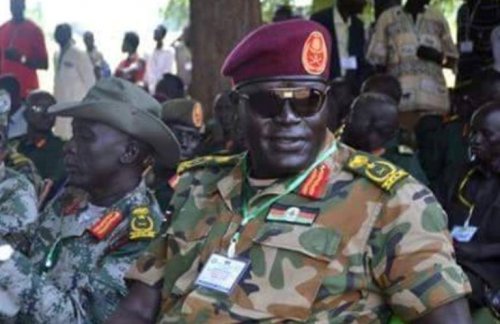December 10; 2020 (JUBA) – The South Sudanese presidency agreed on Wednesday to consult the Upper Nile communities on the appointment of Johnson Olony.as the state governor in a bid to end the stalemate between the president and his first deputy over the issue.
The meeting agreed that “the Revitalized Transitional Government (…) holds a conference in Juba for all the Communities of Upper Nile State to discuss ways and means of resolving any tribal or communal differences and to engender harmony in the State prior to a final decision on the appoint of the Governor of the State,” reads a statement released after the meeting.
The meeting was chaired by President Salva Kiir with the participation of FVP Riek Machar, and the four other vice-presidents: James Wani lgga, Hussein Abdel-Bagi Akol, Taban Deng Gai and Rebecca Nyandeng De Mabior.
Last June, President Kiir and FVP Machar reached a deal on the allocation of the 10 states after three months of discussions. However, the former refused to appoint the SPLM-IO nominee for the Upper Nile State Johnson Olony.
For President Kiir, Olony is a trouble-maker that he cannot appoint because he personally would be accused if he wages violence in the multi-ethnic state.
“If it is somebody who will cause fighting or conflict, like in Upper Nile, I say ‘no’, because it will be on my neck later in the day,” Kiir said at the ceremony.
“If it is somebody who will cause fighting or conflict, like in Upper Nile, I say ‘no’, because it will be on my neck later in the day,” said Kiir at the swearing-in ceremony of the state governors last July.
Lam Akol, the leader of the National Democratic Movement advised the presidency to not involve the Upper Nile communities in the dispute between the president and his deputy over the state government.
“The two parties should sort this matter out among themselves, and the sooner the better,” Akol wrote in an article published by on the Sudan Tribune.
He said that the two leaders have two options: the SPLM/A-IO either to insist on its nomination on the strength of the provisions of the Agreement or heeds to the President and changes their nomination.
“The Presidency would have rendered good service to the people of South Sudan if the four Vice Presidents in the Presidency had talked their two senior colleagues into accepting either of the two options above,” he stressed.





